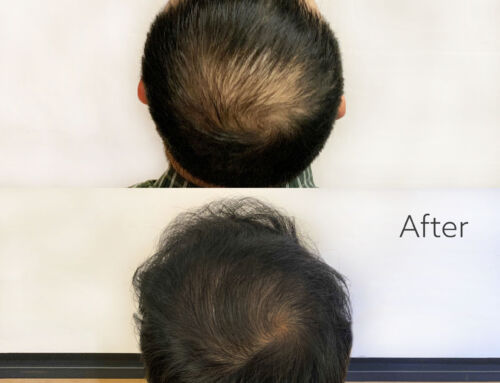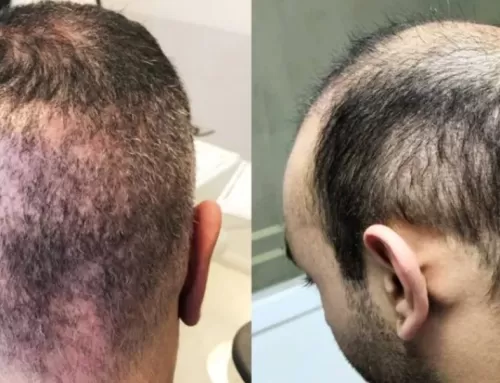If you have been researching hair transplantation, chances are good that you have come across the phrase “shock loss,” probably in the context of some pretty dire horror stories of patients looking worse after their transplants than before. While shock loss is indeed a possibility after hair transplant surgery, understanding what it is and how it might affect you could help to calm any fears you have about the phenomenon.
At New England Center for Hair Restoration in Boston, risks of hair transplants such as shock loss are discussed in detail during in-depth consultations with our experienced physicians. While every hair loss treatment, whether surgical or medicinal, has some degree of risk, the potential upside – a full head of natural, lustrous, growing hair – more than justifies that small risk for most of our patients.
What Is Shock Loss?
Shock loss refers to the loss of either existing or transplanted hair after a hair transplant procedure. This hair can be lost from either the transplant area or the donor area. There are a number of possible causes of shock loss; however, it is nearly always a temporary phenomenon affecting a percentage of hairs in the area, rather than all of the hairs.
There is no hair transplantation technique that makes shock loss less likely, and for some patients, shock loss is simply a natural response to transplantation. When hair transplantation is performed with exceptional care by an experienced surgeon, such as the surgeons at New England Center for Hair Restoration, the chances of shock loss are significantly smaller.
Causes of Shock Loss
Loss of some of the newly transplanted hair grafts after surgery is fairly common and perfectly normal. The transplanted grafts are generally healthy, and the hair will grow back. This loss isn’t necessarily the result of shock, though it may be.
One of the most common causes of shock loss is the failure on the part of the physician not to damage the follicles of existing hair in the area where new hair is being transplanted. Ironically, in attempting to preserve these existing follicles, even meticulous surgeons can cause hairs that were programmed to fall out soon to do so prematurely. As long as this hair loss was genetically programmed to be temporary (as part of the normal growth cycle of hair), the hair will return.
Our hair transplant surgeons are extremely careful in making strategic incisions and not placing the transplanted hair in too dense a configuration. Along with the use of minoxidil after surgery, this extreme care helps to prevent shock loss.
We exercise equal care in performing female and male hair transplantation to minimize the risk of shock loss; however, it is worth noting that females are nevertheless more prone to shock loss than males.
Learn More about Shock Loss
At New England Center for Hair Restoration, you can expect only the highest-quality hair loss treatments using the most advanced technologies and techniques. While there is never a guarantee against shock loss, you can count on our surgeons to minimize all possible risks associated with hair transplantation. To learn more, please contact our hair restoration clinic today.






